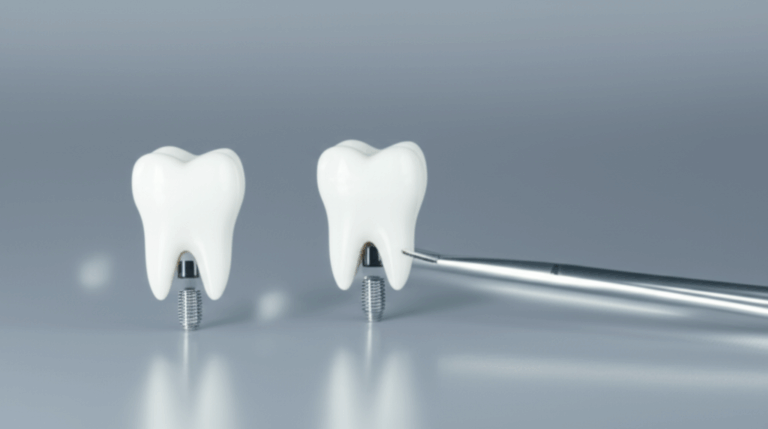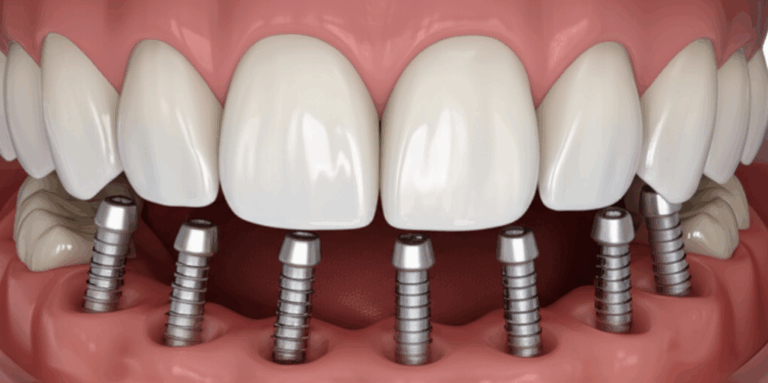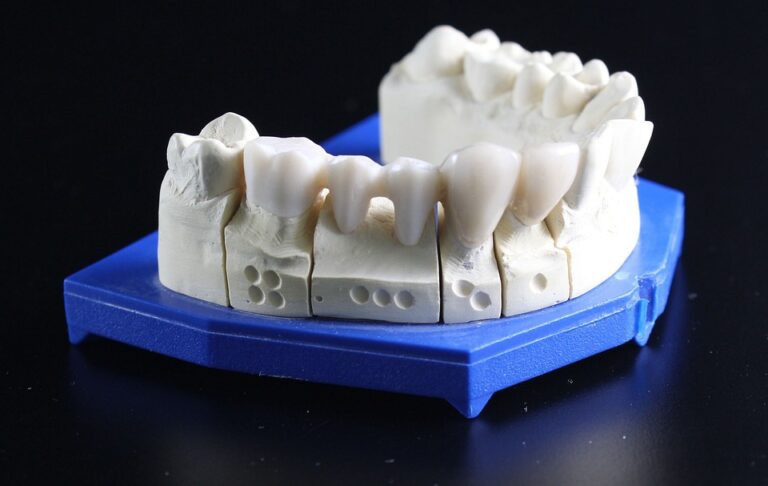
What Problems Can Poor Dental Health Cause?
For years, I treated my mouth like it was not connected to my body. A little blood when I brushed? I thought I was just brushing too hard. A little pain in a back tooth? I’d just chew on the other side and hope it stop. I was busy, and I thought the worst thing was maybe a cavity. I was so wrong. My wake-up call wasn’t one big thing, it was me slowly gettin it that not taking care of my mouth was making a mess of problems in my whole body.
This is the story of what I learn. It’s not a list of sicknesses; it’s my own shocking story of how I connected my mouth health to my body health. If you ever ignored a tooth pain or didn’t floss for a week (or a month), I want to tell you the important stuff I wish I knew sooner. We’re going to talk about more than cavities and look at the deep, whole-body problems that start with bad dental care, because knowing this link is the first step to being healthy all over.
The Domino Effect: How a Small Mouth Problem Become a Big Body Problem
I used to think my mouth was like Las Vegas—what happens in your mouth, stays in your mouth. A little pain or some puffy gums felt like a small problem in just one spot, something I could fix later. But what I learned is your mouth is more like a big train station. It’s a busy place with tracks going to every other part of your body, specially your blood.
My first clue something was wrong was bleeding that wouldn’t stop when I flossed. I didn’t floss much, so when I did, I saw pink in the sink and think, “My gums are just not used to it.” But the truth is, healthy gums don’t bleed. Bleeding is a sign of irritation, which is your body fighting an attack. The attacker was plaque—a sticky, clear film of germs always making on my teeth.
This first stage of irritation is called gingivitis. It’s your body’s first warning sign. For me, it showed up as red, puffy gums that was sore if I touched them. The good news about gingivitis is you can fix it all by brushing and flossing good. The bad news is it’s real easy to ignore, and that’s what I done.
When you ignore gingivitis, you’re pretty much leaving the door open for a bigger problem: periodontitis. This is where it gets bad. With periodontitis, the soreness that never goes away starts to break down the skin and bone that hold your teeth. The gums pull away from the teeth, making little pockets. Them pockets are the perfect place for more bad germs to grow.
Think of it like a small leak in a pipe under your sink. First, it’s just a little drip. You put a bucket under it and ignore it. But that drip soaks the cabinet, makes the wood rot, grows mold, and then wrecks the whole kitchen. Periodontitis is that leak. The germs and the gunk from the swelling don’t just stay in them pockets. They get into your blood through the hurt gum and start to travel all over your body, causing trouble far from where they started. This idea blew my mind—the germs from my gums could get in my heart, my lungs, and my brain.
The Heart of the Matter: The Shocking Link to Heart and Blood Vessel Problems
The thing that really scared me was the link between my gum sickness and my heart. My family has heart problems, so I always tried to eat okay and get exercise. I thought I was doin enough. I never thought that not flossing was messing up all my other hard work.
I found this out at a normal check-up. My doctor saw my blood pressure was going up, and when we talked about my life, he asked me a question I didn’t expect: “How much you see your dentist?” I said something like I didn’t want to answer. He looked right at me and said, “The soreness in your body is a big risk for heart disease, and a big source of that soreness for lots of people is their mouth.”
That talk sent me to do a lot of research. What I found was scary but also made me want to change. Scientists found that people with periodontitis have a much bigger chance of gettin heart and blood vessel problems, like a heart attack or stroke.
Here’s how I get it:
- Traveling Germs: The same bad germs that make your gums sore, like Porphyromonas gingivalis, can get in your blood. When they’re in there, they can go to the tubes in your heart.
- Making Things Sore: These germs can stick to the fatty stuff in your heart’s tubes (atherosclerosis) and help make the tube walls sore.
- More Clot Risk: The body’s reaction to being sore can make these fatty things break open. When one breaks, it can make a clot. If that clot blocks blood to the heart, it’s a heart attack. If it blocks blood to the brain, it’s a stroke.
It’s a direct attack. The soreness from my gums was like pouring gas on the fire of what I got from my family for heart disease. Knowing this changed everything. It made me see taking care of my teeth different, not just for looks, but as a key part of my plan to keep my heart healthy.
A Bad Cycle: Teeth Health and Diabetes
Another strong link I learned about is with diabetes. I don’t have diabetes, but my uncle has had Type 2 for more than ten years, and I saw how hard it is to handle. When I started lookin into the link between mouth health and body sickness, diabetes came up a lot, and it’s a real nasty two-way street.
Here’s the deal:
First, diabetes makes gum sickness worse. People with diabetes get infections easier, and gum sickness is a germ infection. High blood sugar makes the perfect place for bad germs to grow in your mouth. Also, diabetes can make it harder for your body to fight them germs, so gum sickness can get worse faster and be more bad. My uncle was always fighting with sore, bleeding gums, and his dentist said it was linked right to his problems with his blood sugar.
Second, and this is the real scary part, gum sickness can make diabetes harder to handle. This is the part of the cycle many people don’t know. When you have a big infection like periodontitis, your body is always sore. This all-over soreness makes your body fight insulin, the thing that controls your blood sugar. So, even if you eat right and take your medicine, the infection in your gums can be working against you, making your blood sugar levels higher and all over the place.
It’s a bad cycle. High blood sugar feeds gum sickness, and gum sickness makes it harder to control your blood sugar. To break this cycle, you got to attack it two ways: be careful with diabetes and have really good brushing and flossing. For my uncle, gettin his periodontitis under control with his dentist help made a huge difference for his whole health.
Breathing Bad: How Your Mouth Hurts Your Lungs
This one was a real surprise to me. I never, ever thought the health of my teeth and gums had anything to do with my breathing. But it makes sense when you think about it. Your mouth is the main door to your lungs.
Every breath you take carries what’s in your mouth down to your lungs. If your mouth is a clean, healthy place, that’s okay. But if your mouth is full of germs from bad gums and rotten teeth, you are breathing in those bad germs with every breath.
For most healthy people, the body can handle this. But for old people, people with weak immune systems, or people who already have breathing problems like Chronic Obstructive Pulmonary Disease (COPD), this can be a big problem. The germs can live in the lungs and cause infections like pneumonia.
In fact, studies showed that making mouth cleaning better in hospital patients and people in nursing homes can lower how many people get pneumonia from breathing in germs. It’s a simple thing that helps a lot. Learning this piece of teeth information made me see how everything is connected. You can’t close off one part of your body from another. My mouth wasn’t just for eating and talking; it was the front room to my lungs.
More Than Morning Sickness: Pregnancy and Mouth Health Problems
When my wife and me was planning to start a family, her doctor told her a dentist visit before trying for a baby was important. At the time, I thought it was just something to check off a list. I was so wrong. The health of a mom’s mouth can affect her pregnancy and her baby.
Hormone changes during pregnancy can make gums more sensitive to plaque, which leads to “pregnancy gingivitis.” It can make gums real puffy, sore, and bloody. If you don’t check it, just like any other time, it can turn into periodontitis.
And here’s where it gets super important: lots of studies have found a link between bad periodontitis in pregnant women and a bigger risk of having their babies too early and with a low weight.
How they think it works is like the heart disease link. The mouth germs and the stuff from the swelling they make can get in the mom’s blood. They can then go to the uterus and placenta, and maybe mess with the baby’s growth and even start labor too early. The soreness itself is a signal to the body something is wrong, which can start contractions too soon.
This was a big wake-up call for us both. My wife got real careful with her dental care routine, and it showed me that taking care of your mouth isn’t just about you—it can also be about protectin the littlest ones.
A Foggy Link: The Connection Between Gum Sickness and a Foggy Brain
Of all the links I found, this one might be the most worrisome. New studies are making a strong argument for a link between gum sickness that last a long time and the brain not working as good, including things like Alzheimer’s disease.
The idea that the germs in my mouth could hurt how my brain works was real disturbing. The science is still new, but the ideas make sense and have more and more proof.
One main idea is about soreness that don’t go away. We know that long-time, low-level soreness in the body is bad for our organs, and the brain is one of them. This body-wide soreness, fed by periodontitis, is thought to help the things that lead to brain cells dying.
A more direct idea is even more scary. Researchers have found the same germs that cause periodontitis, Porphyromonas gingivalis, in the brains of dead Alzheimer’s patients. They’ve also found the poison enzymes that these germs make. The guess is that these germs can travel from the mouth to the brain (in the blood or along nerves) and directly help make the amyloid-beta plaques, a main sign of Alzheimer’s disease.
This research don’t prove that gum sickness causes Alzheimer’s, but the link is really strong and frightening. For me, it made it more urgent. I want to stay sharp for my family for a long, long time. Protecting my brain was another big reason to never ignore my mouth health again.
More Than The Obvious: How Bad Teeth Hurt Your Feelings and Your Mind
The whole-body health problems are scary, but they can also feel far away. What I felt every day when I was ignoring my mouth was how it hurt my feelings and my mind. It was a heavy thing to carry all the time.
It started with me not feeling confident. My gums was red and I had bad breath that wouldn’t go away, no matter how much mouthwash I used. I started kinda covering my mouth when I laughed or talked. In meetings, I would lean back from the table, scared that people would notice. It makes you feel bad about yourself in a way that’s hard to explain until you been through it.
Then the pain came. That little ache in my back tooth turned into a sharp, pounding pain that would wake me up. Pain that don’t go away is tiring. It messes with your mood, your patience, and your focus. Simple things like eating a meal or having a cold drink became things I worried about.
Last, there was the money stress. After ignoring that tooth for too long, the rot got so bad for a simple filling. I needed a root canal and a crown. My dentist was great and explained it all. He showed me how the scan of my tooth would go to a digital dental lab, where they would make a perfect, strong crown. He even said the material, a nice porcelain called E-max, which an emax dental lab is special at making so you can’t tell it from a real tooth. The tech was amazing, but the bill was a punch in the gut. I kept thinking how a few dollars for floss and cleanings over the years could of saved me from this big, painful procedure. In harder cases with lots of teeth, I learned a special arch dental lab might even have to make bridges or other big fix-up jobs. All of it was a big reminder of the high price for not taking care of things.
Turning It Around: How I Got Healthy Again and How You Can Too
The good news in all this is that you got a lot of power to stop these problems. My trip back to a healthy mouth didn’t happen overnight, but it was built on simple things I did all the time that paid off big. If you’re ready to turn it around, here’s what I learned that works.
1. Build Your Basic Habits You Have To Do
This is the main part of good mouth health. It ain’t fancy, but it’s important.
- Brush Right: This means two times a day, for two whole minutes each time. Use a soft brush and fluoride toothpaste. I set a timer on my phone for a few weeks till it was a habit. Don’t scrub like you’re cleaning a floor; use soft, circle motions.
- Floss Every Day: This is the one I fought the most, and it was my biggest mistake. Flossing ain’t optional. It’s the only way to get plaque from between your teeth and under your gums, where a brush don’t reach. Find a floss you like—waxed, not waxed, tape, or floss picks—and just do it. Make it automatic like brushing.
2. Get a Professional Partner
You can’t do it all yourself. A dentist and a dental hygienist are your health partners.
- Schedule Normal Check-ups and Cleanings: Don’t wait till you’re in pain. For most people, this is every six months. Professional cleanings get rid of tartar (hard plaque) that you can’t get off at home. These visits also let your dentist see small problems before they get big and cost a lot.
- Be Honest: Tell your dentist about your habits, what you’re worried about, and anything you notice that’s different (like bleeding, pain, etc.). They have a lot of teeth information and can give you advice that’s just for you.
3. Listen to Your Body’s Warnings
Your body will tell you when somethin is wrong. You just got to listen.
- Bleeding Gums are NOT Normal: Like I learned the hard way, this is a sign of irritation. Don’t ignore it. Brush and floss more, and if it don’t get better in a week or two, see your dentist.
- Deal with Pain: Pain is a clear sign something is wrong. Feeling pain with hot, cold, or sweet could mean a cavity, a crack, or your gums pulling back. Get it checked out.
4. Feed Your Health From The Inside
What you eat directly hurts or helps your mouth.
- Eat Less Sugar and Acid Foods: Germs eat sugar and make acids that eat your tooth enamel. Sodas, sports drinks, and eating sugary snacks a lot is a recipe for problems.
- Eat a Good Diet: A diet with lots of vitamins and minerals, specially calcium and Vitamin C, helps keep your teeth and gums strong and healthy.
My journey taught me my mouth ain’t its own thing. It’s the doorway to my whole body. Taking care of it isn’t just about stopping cavities or having a nice smile; it’s about protecting my heart, my brain, my lungs, and my energy and life. It’s one of the strongest and most direct things you can do for your long-term health and happiness. Don’t wait for a wake-up call like I did. Start today.







